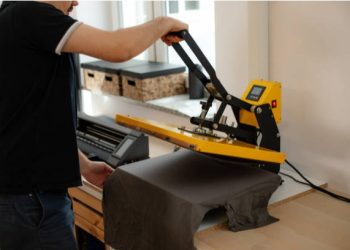The construction industry needs plenty of light and heavy machinery to perform its tasks. When we think about the construction industry it is usually more focused on large machines such as large chunks of steel or thick sections of lumber.
However, screws for metal studs play an extremely important role in the execution of projects for those working in the field of construction. They function as glue that holds in place different elements of construction. Fasteners are used almost everywhere in construction work.
Do you require a lot of fasteners? Connect with suppliers of fasteners to get all types of fasteners at affordable costs.
Here Are The Types Of Fasteners Used
- Bolts
- Nut
- Washers
- Screws
- Rivets
There Are Two Main Types Of Fasteners Available
Mobile Fastener
Mobile fasteners consist of nuts, bolts, washers, screws, and bolts. They are designed to form the union between two items. The fastener is able to be removed with ease without causing any damage to the connection.
Permanent Fastener
Rivets, welding, and other screws are regarded as fasteners that are permanent. They are designed to form an unbreakable bond between two parts.
Fasteners are needed to construct everything and everything ranging with towers and bridges, all the way to garages and houses. Fasteners are used to hold various kinds of construction materials and the use of high-quality fasteners is essential to all kinds of applications and particularly important for construction.
The quality of the mirror screws with caps is important significantly to keep joints secure and tight for years to come. It is essential to purchase the fasteners from a reputable supplier of fasteners in order to obtain the top quality products.
What Is The Best Fastener, And Why It’s Important
Selecting the wrong fastener could significantly affect how well you can deliver your service or product and may result in your product failing in the first place or cause you to not be able to meet the fulfilment of your item. What are the things to think about when selecting an appropriate fastener?
- The impact of the fastener on the end-user, customer, or client
- The way the fastener affects how your process or product is made
- If the fastener will benefit the quality of your product
- The price of the fastener
The Essential Role Of Fasteners
Companies in the oil and gas industry invest millions of dollars in designing projects, and making a mistake on the smallest of details like quality Flange Bolting Kits, Hex nuts, fasteners, and Flange assembly kits, could cost you a lot.
Your project and plant can cut down on repair costs due to making sure you choose the correct fastener prior to the start process. Incorrect fasteners could cause:
- Joint leakage
- Product life expectancy is shorter
- Costs of repair are rising due to increased labour.
- The product’s performance is poor or plant
While the quality of sheradised nails is crucial however, it’s equally important to choose the best equipment for the job for instance, a high-end Industrial torque wrench.
The correct installation has never been the primary reason why a part or flange joint has failed. There are a lot of businesses out there waiting to offer their services to your customers. Do not ignore the small factors because your company is losing market share.
How To Choose The Best Fastener?
Fastener Material
Always pick the fastener that is higher quality and constructed from strong material than the parts they hold. It may seem as if you’re wasting money, but it can save you money in repairs and labour costs. Make sure you match the materials in the hex nuts, flange bolting pieces, and flange components to the project.
Solid Joint Design And Fastener Selection
The joint should not be a weakness. To do this, you need to select fasteners and other hardware that can withstand the heat and weight of the joint as well as the surroundings within which it is placed.
High-quality Fasteners
The plan of your plan should incorporate the possibility of replacement of fasteners in a manner to prevent hot bolting and other risky joint repairs.
Fasteners Come With A Wide Array Of Components
To ensure that the integrity of your hex set screws is maintained be sure to examine the properties of the material, temperatures minimums and maximums, as well as the toughness of the material and the way in which these factors are aligned with the industry standard.
Choose a bolt that matches or surpasses the yield strength of the joint. Be sure to check the chemical composition since certain metals are more corrosive in certain conditions such as titanium fasteners and steel fasteners in saltwater.
How To Make Use Of Screws And Fasteners
Whatever bolt or fastener, the initial step is usually to make a threaded hole into the material that’s smaller than the dimension of the device you intend to utilise. Whatever it is, whether it’s a bolt or a nut bolt, you’ll get an even more secure connection by drilling the holes prior to placing the bolt.
When you use threaded fasteners, such as screws, ensure that you drill only a small amount of the material’s surface to ensure it’s possible that screw’s threads catch the material properly. Once the initial hole is made, you are able to continue to use a drill to push the screw through the product until the head is in line with the surface, or you can remove the drill, and finish the screw with a screwdriver that you can use manually.
When you use bolts and nuts for installation, it’s important to ensure that the hole is clean through the material to ensure that the bolt will pass straight through your material and create connections with the bolt on the other side. When choosing the bolts that are suitable that you’ll need for your project, it’s essential to know the thickness of the material to which you’ll fasten it since you don’t want your bolt being too narrow to connect or be too long.
Metals Used For Fasteners And Screws
Screws are manufactured using a range of metallic as well as alloys. According to the use it is possible to have particular requirements for strength as well as corrosion resistance requirements or other requirements that define the best metal or set of metals to be utilised for production.
Usually, bolts and screws are constructed from steel because of its strength and cost-effectiveness. However, fasteners and screws can also be made of brass, stainless steel, titanium, as well as a selection of other metals, based on the purpose for which they are intended.
Common Fabrication Methods
Machining and Cold Heading are two common fabrication techniques for screw fasteners and screws.
Cold Heading
Also called cold forging this method shapes wire made of metal with high-speed punches, dies and Hammers (instead of heating). When a screw is cold-headed, it’s put through a machine that cuts threads into the shaft of the screw. This is done by either using two grooved-dies on the blank screw, or making use of a die cutting machine to spin through the holes of the shaft.
Machining
A computerised process that employs cutting tools that cut sharp edges, machining removes screw blanks in order to create the desired shape and specification. The Precision CNC Machining process is the best for screws with small diameters or customised designs.
Conclusion
The choice of the right fastener can be difficult and requires lots of thinking. The team is an excellent source of fastener and tool information. They’re an excellent collaborator when it comes to selecting the best nut screw option for your particular project.

















